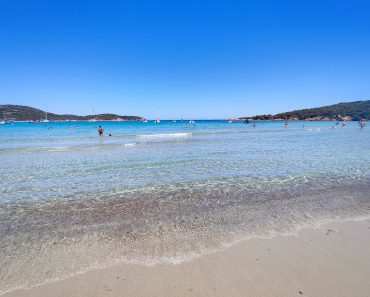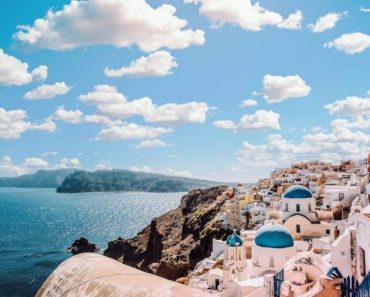Travelling to Greece in the Eighties, just a decade after the collapse of the country’s Right-wing military junta, was generally a haphazard affair for most tourists. Descending from diesel fume-wreathed ferries, travellers were mobbed by locals screaming: “Rooms? You want rooms?”
Picking one at random you were carried off into the velvety, cricket-serenaded darkness in the back of a tattered Nissan pickup truck, to arrive at a rustic domatia (room) in the middle of nowhere (but always close to a spectacular beach), where you slept on hard (always unromantically single) beds and were lucky if you had hot water. Even though you spent the night tossing and turning on your bed of nails as you vainly tried to fend off the mosquitoes, however, the warm welcome you received in the morning, along with just-laid boiled eggs and slabs of bread slathered with local honey, always won your heart.
Already in the 1930s the Greek National Tourist Office (GNTO) had coined the slogan: “Going to Greece is like coming home.” “Greece has always been first and foremost about the experience, the emotions and the feeling of freedom. The healthy, unhurried way of living made visitors feel not just like tourists, but like part of the [destination],” Georgios Kaloutsakis, whose parents opened one the first hotels in the popular Cretan resort of Hersonissos, told me.

Writer Heidi Fulle-Love, pictured in Santorini, has fond memories of visiting Greece in the 1980s
Greece began to develop its luxury hotel industry in the Sixties, when the country became a magnet for international jet-setters from Grace Kelly to Brigitte Bardot and Marlon Brando. By the late 1970s, Greece still only had a very limited number of five-star hotels, however – perhaps only a few dozen, including the Grande Bretagne and Astir Palace (these days a Four Seasons), both in Athens, Eleni Skarveli, the director of the GNTO’s UK and Ireland office, explained to me. “Back then, luxurious amenities were rare and reserved for the elite,” she added.
My well-appointed suite with it’s plump queen-size bed, marble bathroom and sea-view pool at Abaton Island, Kaloutsakis’s current property in Crete, shows just how far Greek hotels have come in the past 40 or 50 years. “In the early days the industry was largely made up of small, family-owned and family-operated businesses,” Kaloutsakis said. “Today, while that personal touch still exists in some places, the sector has become more corporate and industrial in scale. This brings new levels of efficiency, consistency, and global standards for sure, but it also shifts the industry away from the intimate, family-driven model that first put Greece on the tourism map.”

A historic photo of five-star resort Creta Maris in Crete, which first opened in 1975
On the megalo nisi (big island) of Crete, the Metaxas family is currently celebrating 50 years since five-star Creta Maris first opened for business back in 1975. Following tourism trends at the time in Spain and Rhodes, the resort’s founder Nikolaos Metaxas saw that Crete was ripe for development. The family’s sprawling waterfront property was built at a time when large-scale resorts were almost non-existent on the island. “Greek tourism has undergone a remarkable transformation over the last four decades – in scale, infrastructure, destination diversity, types of tourism and sustainability awareness,” Andreas Metaxas, the chief executive of Metaxa Hospitality, told me.
According to the recent Greek Hospitality Market report, more than 400 five-star hotels opened their doors between 2012 and 2022, which represents a 117 per cent increase compared to the previous decade. Five-star properties accounted for 43.5 per cent of total hotel revenues during this period. “Luxury in hospitality has shifted from material opulence to meaningful experience. Four decades ago, guests were dazzled by large swimming pools, air conditioning, minibars, televisions and lifts. Today, guests demand the luxury of authenticity and simplicity,” Andreas opined.

Holidaymakers at Creta Maris resort, circa 1980-90
Markos Chaidemenos is the second-generation owner of family-run Canaves hotels, one of the first hotel chains in Santorini, and currently its most high-end. Setting the trend that now brings some three million tourists flocking to this Cycladic island each year, the Chaidemenos family converted a cluster of 17th-century kanaves – caves that were used to store wine – into unique accommodation. “Back then the heart of Santorini’s tourism was at the beach – the cliff side was considered the ‘cheap’ side. We were among the first to see the potential of the caldera cliffs and Oia village as the ultimate luxury setting,” the 30-something owner said.
Today though, he added, the challenge is balance. Like many successful destinations, Santorini has experienced seasons of intense overcrowding. To address this, the island has introduced important measures, including a daily cap of 8,000 cruise ship passengers and a €20 (£17) ticket for cruise visitors.

The Chaidemenos family (with Markos, the second-generation owner of family-run Canaves hotels, on the right) – MAXOS
From some 71,000 arrivals in 1930, Greece now attracts around 35.9 million tourists per year. The 2024 Virtuoso Luxe Report, which surveyed more than 2,000 travel agents and professional travel advisors in 50 countries, cites Greece (which was also named Best European Destination in this year’s Telegraph Travel Awards) as one of the top global destinations for high-spending travellers.
Speaking at the inauguration of One&Only Aesthesis, the One&Only brand’s second Greek resort, earlier this year, Greek Prime Minister Kyriakos Mitsotakis stated that Greece is positioning itself to become “a leading player in the ultra-luxury tourism market”.
Faced with fierce competition to invest and upgrade year-on-year, many of the family-owned, family-run hotels that were at the origin of Greece’s tourism boom are unable to compete, however. At the end of 2024, according to data released by Greece’s (Institute of Tourism Research and Forecasting (ITEP), one-star hotels had dwindled to 1,147 and two stars to 3,251, representing a total loss of 1,538 hotels or nearly two per week over the preceding year. “Today, survival in our industry is directly tied to growth: it’s a case of ‘get bigger or die’,” Kaloutsakis explained. “We are competing against powerful worldwide brands and it is not a fair fight. I can say with some certainty that we are the last generation of truly independent Greek hoteliers.”
These fears are confirmed by Travelworks’ Greek market report for the period of 2024 to 2027, which states that more than 60 hotel projects will be developed in Greece within the next four years and four out of 10 new hotels will be owned or operated by international brands. “Luxury can be built anywhere in the world, but the soul of Greek hospitality – the warmth, authenticity, and connection to the land and its people – cannot be replicated,” Kaloutsakis warned.
Heidi Fuller-love travelled as a guest of Creta Maris, which offers doubles from £200; and Abaton Island, which offers doubles from £256; Canaves Ena, which offers doubles from £391.







